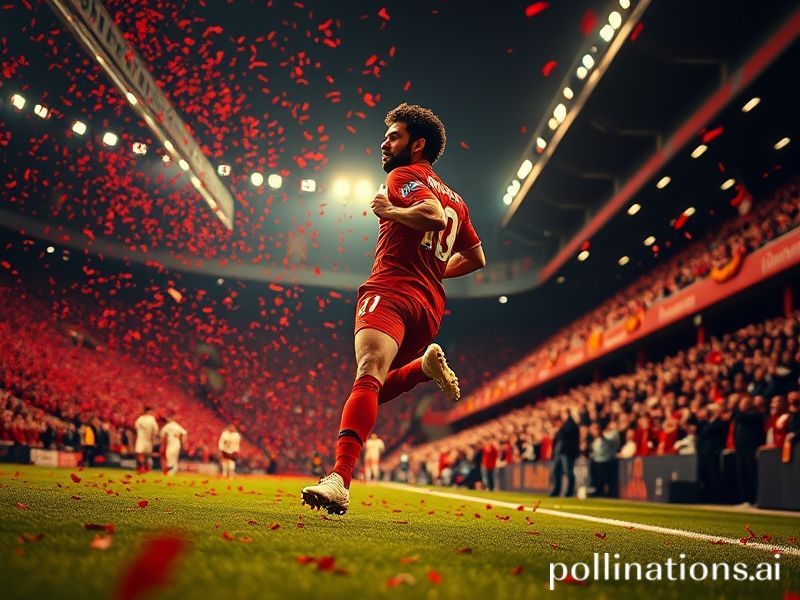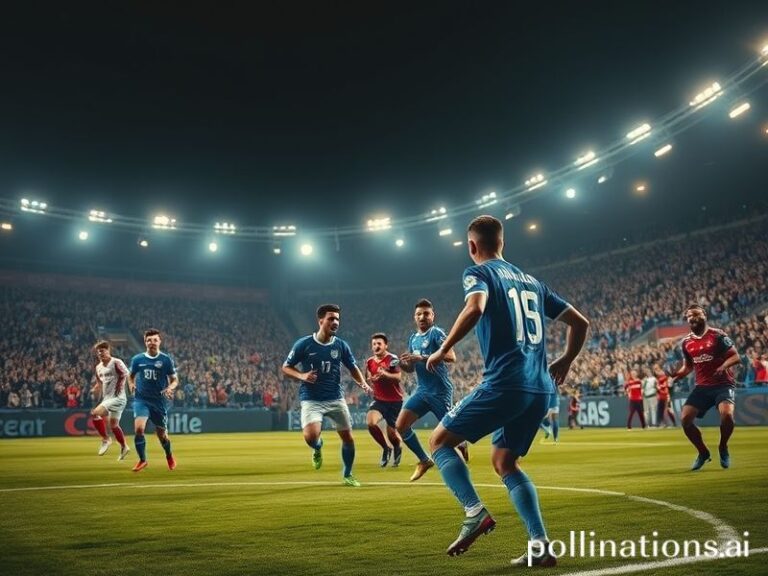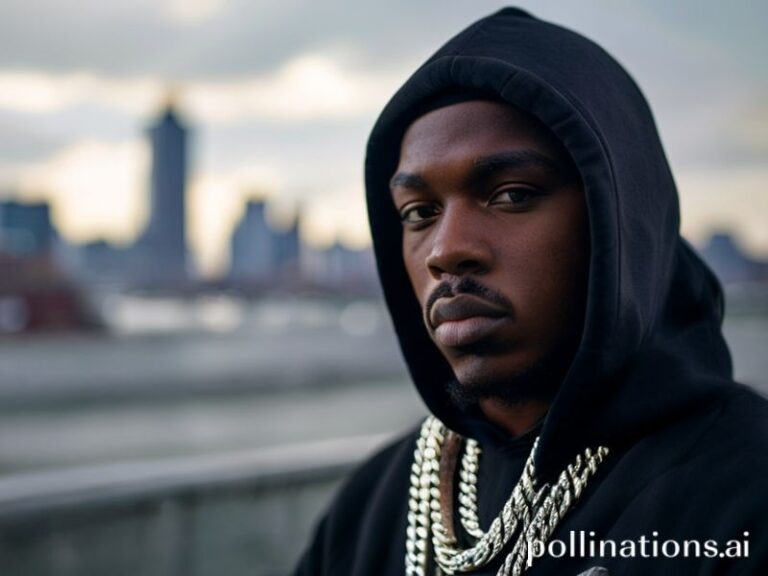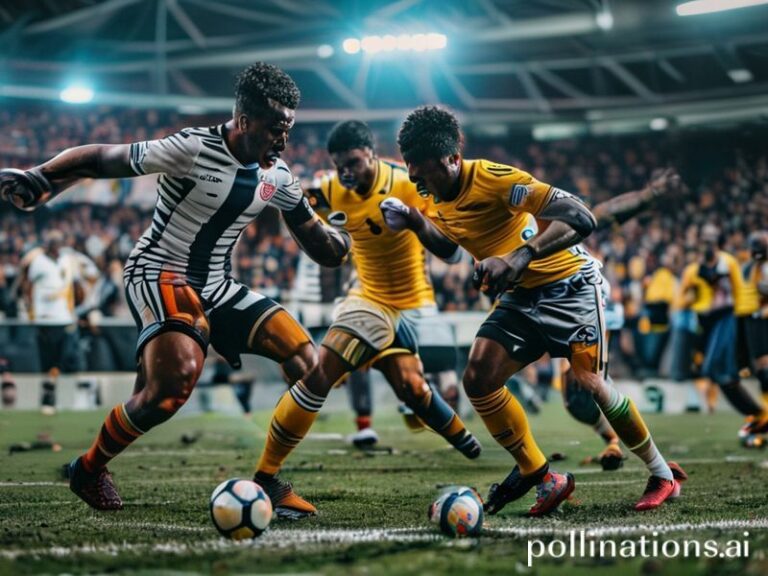Pharaoh of the Planet: How Mo Salah Became the World’s Favorite One-Man Nation
**The Pharaoh’s Global Empire: How Mo Salah Became the World’s Favorite Bargaining Chip**
*By Our Man in the Departure Lounge*
Mohamed Salah Hamed Mahrous Ghaly—known to passport officers, billboard designers, and every pub-arguing Phil in England simply as “Mo”—is currently the most efficient Egyptian export since the Ptolemaic dynasty shipped papyrus and existential dread to Rome. On the surface he’s a right-winger who cuts inside faster than a multinational corporation re-domiciling for tax purposes, but in the grand bazaar of geopolitics Salah has become something far more versatile: a one-man foreign-policy Swiss-army knife.
Start with the obvious: 55 million Instagram followers, comfortably larger than the population of South Korea. That audience isn’t clustered in Merseyside; it’s scattered from Lagos cafés where data is more expensive than coffee, to Jakarta basements where fans stream on five-pixel feeds, to Cairo rooftops rigged with coat-hanger antennas. When Salah scores, global search volume for “Liverpool” spikes higher than when the actual city announced its first zero-carbon bus route—an irony not lost on a planet that would rather watch a man punt a ball than board an eco-bus.
The numbers are almost satirical. Mo’s 2019 hat-trick against Bournemouth reportedly lifted the Egyptian stock index 3 % the following trading day, a phenomenon analysts call “the Salah Bounce,” because nothing says sound fiscal strategy like pinning your national pension on a left-footed volley. Meanwhile, Egyptian tourism officials still whisper that hotel bookings in Luxor rise 15 % every time Salah’s goal highlights roll on Sky Sports between segments of retirees complaining about Brexit. If that feels like magical thinking, remember we live in an era where central banks treat tweets as monetary policy.
Zoom out—way out—and Salah is a walking, goal-scoring rebuttal to every nativist fever dream. Post-Brexit Britain spent years promising to “take back control,” yet quietly renewed work permits for a Muslim African millionaire who kisses the turf after every goal like he’s planting a flag on the moon. In Italy, where populists once threw bananas at Black players, Roman ultras now name their kids after the very man who dumped AS Roma for England. Somewhere in that hypocrisy lies a doctoral thesis titled *Racism.exe Has Stopped Working: A Case Study*.
The Israeli-Palestinian conflict even tried drafting him as a part-time diplomat. After Salah tweeted a “Pray for Gaza” message in 2021, Israeli officials reportedly lobbied (unsuccessfully) for Liverpool to bring them a goodwill match in Jerusalem. Think about that: governments that can’t agree on water rights still believe a winger from Nagrig might deliver peace in 90 minutes plus stoppage time. Meanwhile, Saudi Arabia’s Public Investment Fund keeps calculator apps open on Salah’s age, wages, and Q-rating like a teenage fan-editing Wikipedia at 3 a.m. One more prolific season and they’ll probably offer to rename the Red Sea “Mo’s Lagoon.”
Of course, the Salah Industrial Complex has its sweatshops. Replica shirts roll out of Southeast Asian factories where workers earn in a month what he makes in 40 minutes, a wage gap so obscene it could be the punchline in a George Orwell footnote. FIFA, ever the NGO with a straight face, celebrates “growing the game” while auctioning off expansion tournaments to the same desert monarchies that need imported labor to build air-conditioned stadiums no one asked for. Salah didn’t invent the supply chain; he just stands at the shiny end of it, smiling in a Pepsi ad next to the slogan “Refresh Your World,” as though carbonated sugar water might irrigate the Sinai.
But credit where it’s due: he never signed up to be Mother Teresa in boots. His philanthropy—funding schools, paying sewage infrastructure bills, donating ambulances faster than the Egyptian health ministry—still outperforms most Western tax-exempt foundations whose charitable activity peaks at black-tie galas. If that sounds like low-bar praise, welcome to late-stage everything.
So what does Mo Salah ultimately signify? A feel-good story that camouflages structural ugliness, sure. Yet also proof that a kid from a village of 15,000 can hijack the attention economy long enough to remind us nationalism dissolves at the whiff of collective joy—even if that joy is sponsored by a betting company and broadcast on a pirate stream. In a fragmented world, he’s the rare neutral flag: waved by Liverpool dockers, Cairo cabbies, and Bandar Seri Begawan teens wearing counterfeit jerseys, all chanting the same three-syllable prayer. For 90 minutes at a time, the globe agrees on something, which is about as miraculous as a clean tackle in the penalty box.
And when the final whistle blows, we go back to arguing about tariffs, border walls, and which brand of hypocrisy to vote for. Salah will jog off, adjust his shin pads, and prepare to do it again—an unwitting mercenary of hope, paid in applause, deployed weekly to keep our disillusion onside. The least we can do is applaud; the banks, stock exchanges, and soft-power brokers already are, calculating exchange rates on ecstasy. Turns out the world’s favorite currency isn’t the dollar, the euro, or even Bitcoin. It’s a left-footed Egyptian who can curl a ball past despair, at least until extra time.







